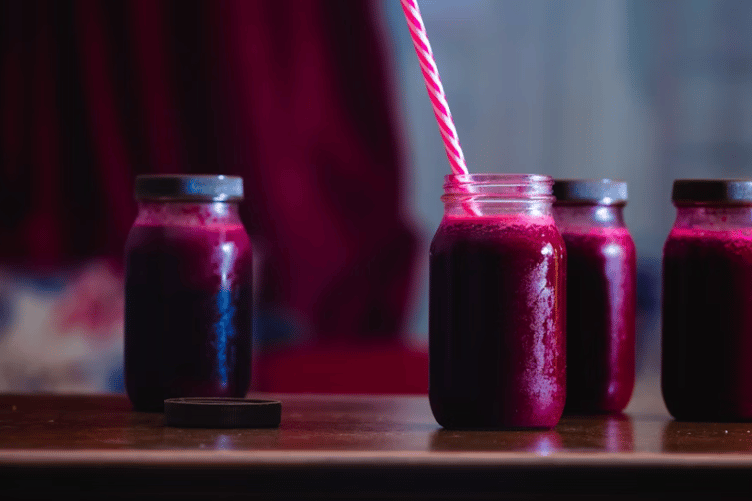BEETROOT juice lowers blood pressure in older people by changing oral microbiome, a study by the University of Exeter has found.
The blood pressure lowering effect of nitrate-rich beetroot juice in older people may be due to specific changes in their oral microbiome, according to the study, which was the largest of its kind.
Researchers at the University of Exeter conducted the study, published in the journal Free Radical Biology and Medicine, comparing responses between a group of older adults to that of younger adults.
Previous research has shown that a high nitrate diet can reduce blood pressure, which can help reduce risk of heart disease.
Nitrate is crucial to the body and is consumed as a natural part of a vegetable-rich diet.
When the older adults drank a concentrated beetroot juice ‘shot’ twice a day for two weeks*, their blood pressure decreased – an effect not seen in the younger group.
The new study, funded by a BBSRC Industrial Partnership Award, provides evidence that this outcome was likely caused by the suppression of potentially harmful bacteria in the mouth.
An imbalance between beneficial and harmful oral bacteria can decrease the conversion of nitrate (abundant in vegetable-rich diets) to nitric oxide.
Nitric oxide is key to healthy functioning of the blood vessels, and therefore the regulation of blood pressure.
Study author Professor Anni Vanhatalo, of the University of Exeter, said: ‘We know that a nitrate-rich diet has health benefits, and older people produce less of their own nitric oxide as they age.
‘They also tend to have higher blood pressure, which can be linked to cardiovascular complications like heart attack and stroke. Encouraging older adults to consume more nitrate-rich vegetables could have significant long term health benefits.
‘The good news is that if you don’t like beetroot, there are many nitrate-rich alternatives like spinach, rocket, fennel, celery and kale’.
The study recruited 39 adults aged under 30, and 36 adults in their 60s and 70s through the NIHR Exeter Clinical Research Facility.
The trial was supported by the Exeter Clinical Trials Unit. Each group spent two weeks taking regular doses of nitrate-rich beetroot juice and two weeks on a placebo version of the juice with nitrate stripped out.
Each condition had a two week ‘wash out’ period in between to reset.
The team then used a bacterial gene sequencing method to analyse which bacteria were present in the mouth before and after each condition.
In both groups, the make-up of the oral microbiome changed significantly after drinking the nitrate-rich beetroot juice, but these changes differed between the younger and older age groups.
The older age group experienced a notable decrease in the mouth bacteria Prevotella after drinking the nitrate rich juice, and an increase in the growth of bacteria known to benefit health such as Neisseria.
The older group had higher average blood pressure at the start of the study, which fell after taking the nitrate-rich beetroot juice, but not after taking the placebo supplement.
Co-author Professor Andy Jones, of the University of Exeter, said: ‘This study shows that nitrate-rich foods alter the oral microbiome in a way that could result in less inflammation, as well as a lowering of blood pressure in older people.
‘This paves the way for larger studies to explore the influence of lifestyle factors and biological sex in how people respond to dietary nitrate supplementation’.
The paper is titled ‘Ageing modifies the oral microbiome, nitric oxide bioavailability and vascular responses to dietary nitrate supplementation’ and is published in the journal Free Radical Biology and Medicine.





Comments
This article has no comments yet. Be the first to leave a comment.